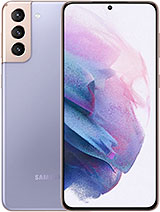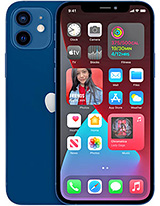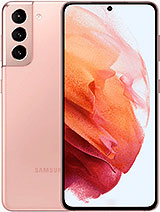Samsung Galaxy S21 vs Apple iPhone 12: Which should you buy? By Pocket-lint
For as long as we've been in the modern smartphone era, Samsung and apple seem to be the two companies offering the default choices for top flagship smartphones, or at least the two defaults that buyers tend to go for and this year for 2021 right now, that's the iPhone 12 and the galaxy s21, I'm cam button from pocket lint, and I'm hopefully going to help you decide which one is the best for you. If you do like this video, it would be wonderful if you hit that little thumbs up and subscribe and hit that little bell to make sure you don't miss any more now. If there's one area, these two phones differ the most it's in design, whether you look at them from the front the side or the back, there's no way, you'd get them confused with each other. In fact, even if you held them in your hand, they feel nothing alike featuring a frosted plastic back. The Samsung immediately feels warmer and softer in the hand. That's further, aided by the rounded edges to me.
That makes it the more tactile of the two devices for some featuring plastic on a flagship device is unacceptable, but the way Samsung has utilized the plastic and the finish it's achieved with the frosted translucent panel, letting through light from the reflective layer beneath actually looks and feels great as for looks, there's no doubt that the iPhone has that premium appeal. The flat edges and the clean lines give it that purposeful, look and the build materials of glass and aluminum in a minimalist blend will appeal to a lot of people. But on a more practical note, it feels a lot more solid and durable too. The frame feels practically unbendable and even after using it for nearly six months, there's barely a scratch on the display. Both phones feature ip68, water and dust resistant, so will survive if you accidentally drop them in the sink or get caught in the rain.
But from the front Samsung seems to make much better use of space by filling as much of it as possible, with display apple's notch cuts in considerably at the top. While Samsung only has that tiny hole punch getting in the way, but in actual fact, once you load up some games and apps, especially in landscape Samsung, tends to black out a portion of it and make an artificial bezel anyway. So the difference once you're actually doing something is minimal, saying that Samsung's bezels do seem a bit skinnier around the sides and at the top apple, however, kept them uniform all the way around. Avoiding that tiny chin. Look that the Samsung has now since we're there anyway.
Let's talk about these displays, unlike last year, apples is the one with the sharper screen here, Samsung downgraded from HD to full HD, and while it's 6.2 inches versus apple's 6.1 inches, it packs in fewer pixels than the iPhone, not that you particularly noticed both push pixel density past the 400 pixel per inch mark and both seem sharp and clear in daily use, both even feature similar peak brightness. It's 1200 nits for apple versus 1300 nits for Samsung. Both are OLED based, and that means you get vivid, colors and great contrast, regardless of what you go for, but perhaps the one big difference here is Samsung's adaptive frame rate technology. It goes all the way up to 120 hertz. When the content on the screen requires it, some will notice it more than others, but it makes general interaction and animation seem really smooth watch the same video or look at the same photo side by side, and you'll spot other differences too, even in its natural mode, Samsung's screen seems to boost pink red and orange colors, so white, skin tones, look a bit pinker and oranges are fiercer.
Apple is a little more muted and natural, but other colors are similar on both. That said, Samsung somehow seems to make stuff look sharper too, and that could just be down to increased contrast. So on the one hand, it's great because it's sharp and bright during video, but on the other there's that red saturation that makes things look less balanced. The other plus size for Samsung, though, is that you can tune it to your liking. If you want to use the vivid mode, you can adjust the color temperature, whereas apple likes it a certain way and that's pretty much it.
You do have true tone if you switch it on it'll automatically adjust to the ambient light around you, but that's about as far as it goes in terms of performance and battery just reading, the specs would be useless. It's like comparing apples with or anger tangs, but the real thing to note here is that in everyday day-to-day use, both phones will give you a fast and reliable performance, whether you're loading, the latest, graphically intense games, browsing the internet or catching up on social media they're fast, and they're, smooth it's the same with battery life with my own personal use, using either phone as my daily device with a couple of hours of screen, time playing games or watching movies. I'd get to the end of the day with about 40 percent left over, and so they're almost two-day devices for me both have 5g wireless charging and fast charging, but neither ships with a charger in the box anymore that you have to buy separately. If you don't already have one so in the camera, department, Samsung has at least one advantage over apple and that's the extra lens. It's got three lenses on the back, and that gives you much more flexibility when it comes to focal lengths.
So as well as having your primary and ultrawide lenses, which the iPhone has Samsung gives you a telephoto lens as well with three times hybrid zoom. It achieves that, partly because the telephoto lens has a 64 megapixel sensor, giving you the ability to crop without losing tons of detail. Now, if you want to, you, can zoom digitally all the way up to 30 times on the Samsung, giving you huge range, even if some of those results at the upper end do look quite ropey iPhone, will let you go up to five times zoom, but it uses the primary sensor and uses a digital zoom losing a bit of detail when it does still. Both cameras. Give you good results in daylight and in low light.
Stick to the standard focal lengths and the two phones will give you good results and both offer effective night modes. iPhone's results seem cleaner. Brighter and sharper than Samsung's using night mode, like it did a better job of stabilizing the image Samsung's by comparison was a tiny bit blurrier and didn't seem to draw in as much light in the daytime. It was kind of the other way around, with the iPhone pictures on the whole seeming to up the contrast and saturation by default. Sometimes that means a lovely, vibrant and rich picture that looked sharp with Samsung's looking a little overexposed in the highlights by comparison other times like on the landscapes, iPhone seemed a tad too dark with Samsung, offering better picture without over egging the blue skies and darkening the shadows too much the color difference between the main and the ultrawide cameras was noticeable on Samsung's, though, but as for selfies.
Yet again, Samsung seems to do a better job of a natural look. iPhone went a bit aggressive on the HDR, completely washing up my face one second and the next one switched to portrait selfie, making it too dark and over saturated, and then there's the fact that Samsung offers so many features and shooting modes that you'll never get bored. As long as you're happy to dig around in the settings, but then that can make it a little confusing for some, and you may just want to stick it in auto mode anyway, both do video 4k at 60 frames per second Samsung's, looking a little over sharpened, sometimes, but both are great quality and offer effective stabilization. Now, in the end, both of these phones offer a great all-round experience and choosing one over the other might just come down to having a premium build and better display, in which case, I think the iPhone is the better choice or, if you're, all about cameras. Samsung has a lot of going for it there, but even in that department, there's no clear winner because both have strengths and weaknesses.
So it's up to you to decide which has the strengths that you value the most as for software iPhone's benefit is that you get updates as soon as they're available and will likely be supported for a good number of years before it no longer gets them and iPhones hold their value. If you decide to sell them later down, the line, Samsung is getting better in that regard in terms of long-term support, but you do have to wait until Samsung tests and releases its own versions of major android updates and that can be months down the line. So what do you think is the iPhone the one for you or is it the galaxy s21 that has stolen your heart? Let me know in the comments I've been cam, I'm at cam Bunsen on pretty much every social media network. If you like this video again, please do hit that thumbs up and subscribe and hit the little bell to make sure you don't miss any more, and I'll, see you again in the next one bye for now.
Source : Pocket-lint










![XIAOMI Mi 10 Ultra Full Review: The best all-round Xiaomi Phone ever [Transparent Edition]](https://img.youtube.com/vi/H4ujRHjze_w/maxresdefault.jpg )
















